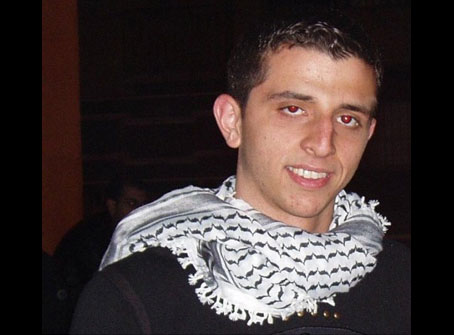District Court Rules in Case of Rawi Sultany: Barring 'Security Prisoners' from Higher Education Studies is Part of "Discouraging Terrorism"
Adalah: "This decision is arbitrary. It is a part of a vicious campaign waged by the Israel Prison Service against Palestinian political prisoners."

Rawi Sultany
(Haifa, Israel) On 7 March 2012, the Nazareth District Court rejected Adalah's petition demanding that the Israel Prison Service (IPS) allow Mr. Rawi Sultany (25 years-old), a Palestinian Arab citizen of Israel categorized as a "security prisoner," to continue his academic studies at the Open University from prison. Mr. Sultany had been studying via correspondence in the Faculty of Political Science at the Open University for the last two years. In June 2011, just prior to the Gilad Shalit prisoner swap deal between Israel and Hamas, the IPS decided to stop all Palestinian political prisoners from studying higher education courses. As of January 2012, there were over 4,300 Palestinians held as security detainees and prisoners in Israeli prisons.
According to the Court's decision, preventing prisoners from studying is part of "discouraging terrorism" and therefore this policy is in the public interest. The court based its decision on testimony from the General Security Services (GSS or Shin Bet or Shabak) that "terrorist organizations" reward prisoners by funding higher education in various indirect ways. The court added that prisoners and "terrorist organizations" take advantage of the privileges granted by IPS for security prisoners in order to pass information in and out of prisons.
Adalah Attorney Rima Ayoub, who filed the petition on behalf of Rawi Sultany, responded, "This decision is arbitrary. It is a part of a vicious campaign waged by the IPS against Palestinian political prisoners. We are studying the possibility of appealing the decision in the Supreme Court."
Adalah filed the petition in September 2011. Mr. Sultany began his studies in prison after being convicted in 2009 for contact with a foreign agent. The Open University is the only academic institution in which prisoners may enroll. Preventing them from joining its classes makes any chance of higher education impossible.
In the petition, Adalah stressed that the IPS's prohibition does not relate to prison safety, order, or internal security. Mr. Sultany's continued education does not have any effect on physical safety, but is instead a further way for prison authorities to punish him. Adalah emphasized that according to Israeli Supreme Court precedent, an individual's rights are preserved even following imprisonment. Imprisonment is not supposed to be supplemented by additional punishment. Any additional encroachment on a prisoner's rights should be built on a clear legal basis and conform with the Basic Law: Human Dignity and Liberty. Prisoners' basic and constitutional rights do not end upon entering prison, but on the contrary, must be heavily protected because of the prison authorities' absolute control.
For additional information, see: Press Release, "Adalah to District Court: Order IPS to Allow "Security Prisoners" to Complete their Academic Education," 8 September 2011













